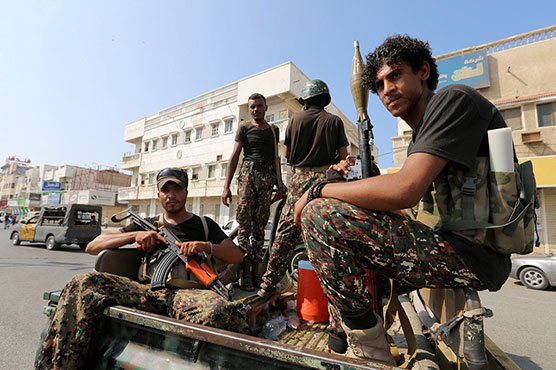Yemen peace hangs on fragile truce as conflict far from over

The Iran-aligned rebels continue to control much of northern Yemen, including the capital Sanaa.
DUBAI (AFP) - Four years after Saudi Arabia led a military intervention in Yemen to back the government against rebels, the only hope for peace in a country threatened by famine hangs on a fragile truce.
Despite the Saudis entering the conflict on March 26, 2015 with a coalition composed of nine countries from the Middle East and Africa, Yemen s internationally-recognised government has failed to defeat the Huthi.
The Iran-aligned rebels continue to control much of northern Yemen, including the capital Sanaa.
And the conflict -- which the United Nations says has unleashed the world s worst humanitarian crisis and pushed the country to the brink of famine -- shows no sign of abating in the impoverished nation.
In December, the rival sides agreed to a ceasefire in the key lifeline Red Sea port of Hodeida -- just weeks after forces loyal to the government were able to enter the rebel-held city.
But even if major fighting has stopped, other elements of the accord -- including a prisoner swap -- have failed to materialise.
"There was a real breakthrough in Sweden. Substantive, on the one hand, but even more so in the psychological sense," Elizabeth Dickinson, senior analyst with the International Crisis Group think tank, told AFP.
"There have been delays, obstacles, and backtracking, but what is unchanged is that the parties still view the agreement as their best option."
Peace elusive
Yemenis were hopeful the hard-won agreement reached in Sweden would be followed by a long-lasting peace deal, particularly as Riyadh came under intense international scrutiny following the murder of journalist Jamal Khashoggi inside the kingdom s Istanbul consulate.
Fighting in Hodeida, whose port serves as the country s lifeline, has largely stopped since the ceasefire went into effect on December 18, but there have been intermittent clashes.
And both the government and the Huthis have been accused of violating the truce deal, while an agreed redeployment of forces has also not yet been implemented.
The Saudi-led coalition, which has won US logistical support and includes the United Arab Emirates, warned in late January it was still prepared to use "force" against the Huthis to make the rebels abide by the UN-backed truce deal.
According to security analyst Aleksandar Mitreski the warring sides in Yemen are "showing no major weaknesses".
He insisted to AFP, however, that an "alleviation of the humanitarian crisis is possible".
"Current mounting pressure on the Saudi-led coalition may open up more channels for humanitarian aid to flow. This pressure can grow if the spotlight shifts from Syria over to Yemen."
International outcry over Khashoggi s murder and images of emaciated Yemeni children has strained Saudi Arabia s relations with its western allies, including Washington.
In March, the US Senate voted to end Washington s military support for Riyadh-led efforts in the Yemen war.

